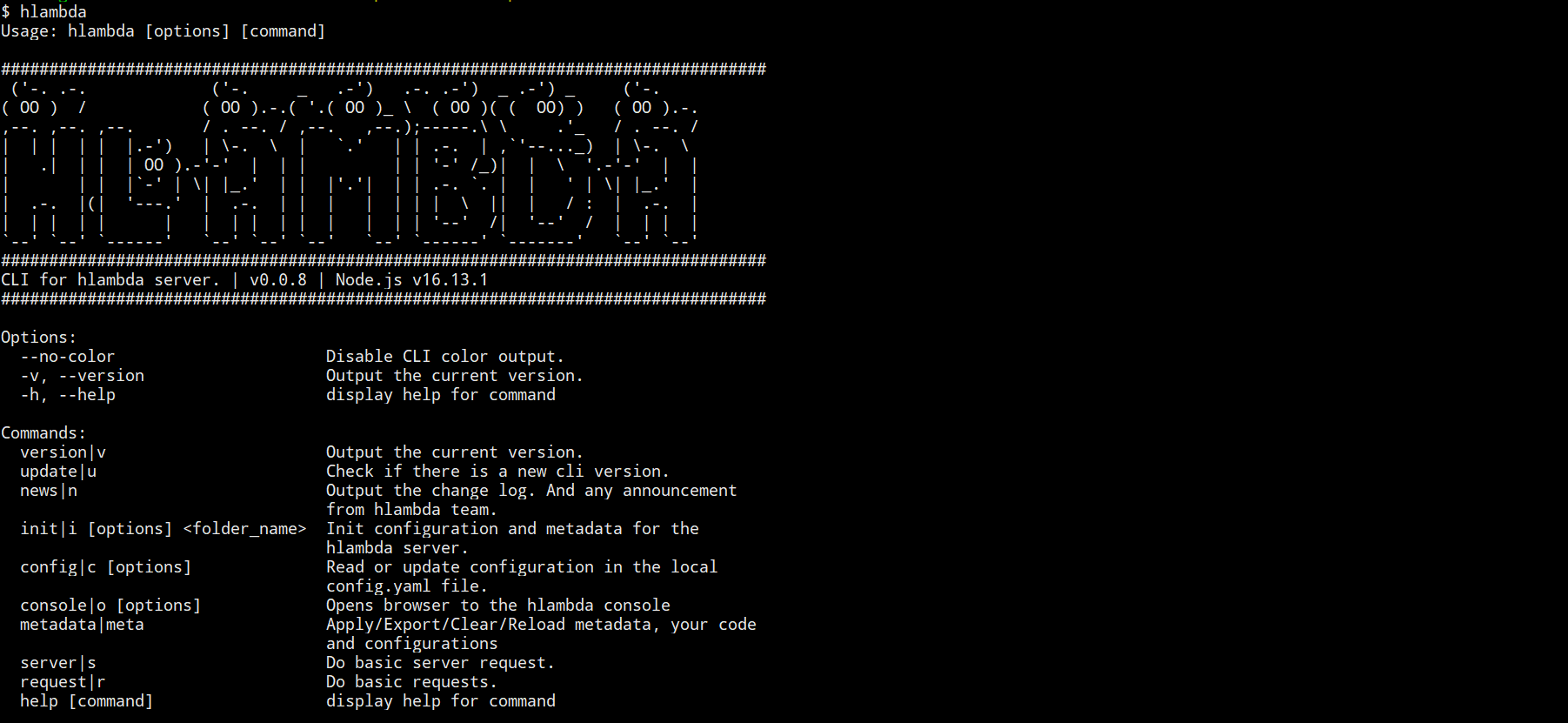Hlambda CLI¶
How to use Hlambda CLI¶

To ge the version:
create new directory with the default codebase
Change the admin_secret in the config.yaml manually or just run
this will edit the config.yaml file and save admin secret value in that file (please take extra care when commiting config.yaml file to not leak secrets)
You can then export the existing metadata from the running server use
or you can apply the changes by running
or run the hlambda metadata apply with option --admin-secretto export existing data from the hlambda server run
Reloading metadata¶
By default metadata apply should also automatically reload the metadata on the server unless --no-auto-reload option is set
to do it manually you can run:
Clearing metadata¶
If you want to clear all the metadata from the server
Project layout¶
config.yaml # The configuration file.
metadata/ # Folder containing all the metadata.
package.json # List of your NPM packages used in your project.
apps/ # Folder containing mini apps
example_demo_app/ # Sub folder for your demo app (totally optional, you can put your router. anywhere, even in metadata root)
hlambda-config.yaml # Mini app configuration, including env overrides
router.index.js # The entry point of your server.
errors.demo.js # Hlambda offers way to easily manage errors, you are never forced to use it.
... # other files...
node_modules/ # Optional
... # other files...
To run this documentation locally¶
windows
to build the docs run:
windows